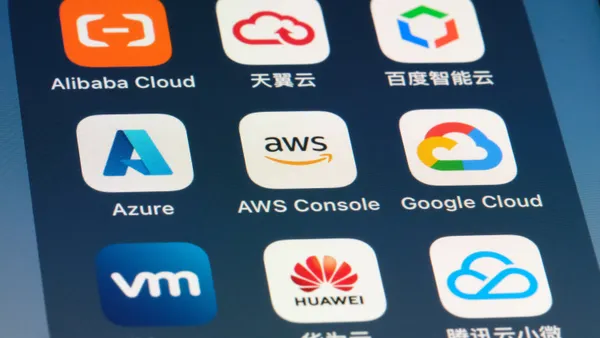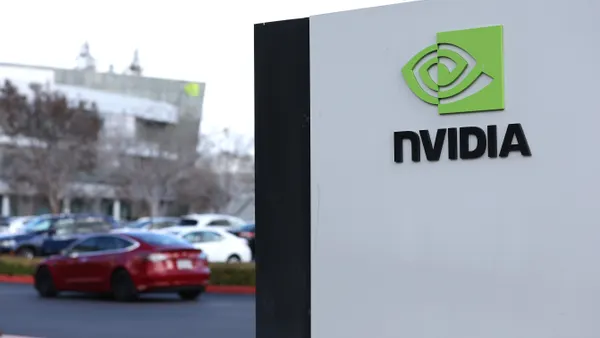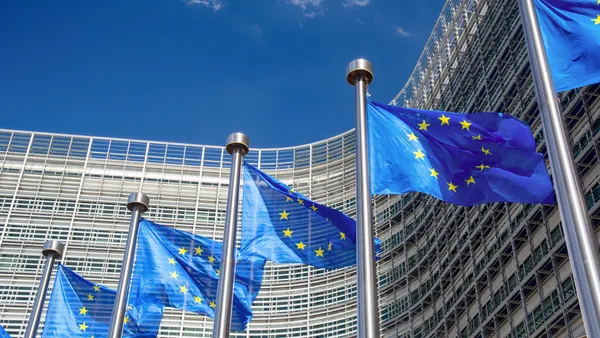Dive Brief:
- Cargill is expanding its blockchain-based turkey traceability program to cover metro areas in 30 states after receiving "overwhelming interest" from farmers, according to a company annoucement.
- The program launched in a pilot last year offering consumers in Texas information about the farms 60,000 Honeysuckle White-branded turkeys came from via text or the Honeysuckle White website.
- This year, the program will cover 200,000 turkeys from 70 farms, representing one-third of the turkeys sold under the Honeysuckle White brand.
Dive Insight:
Farm-to-consumer traceability is a much-discussed application for blockchain technology since the immutable record offered by distributed ledger technology can record each link in the food chain in one place — uniting a plethora of digital and paper records as food changes hands on its way to the Thanksgiving table.
Consumers are increasingly curious about where their food comes from, and the traceability offered by blockchain technology can provide that information. The technology serves as an additional layer of protection for products, reputation and customer well-being.
Leaders in the blockchain space include IBM, which is engineering "cryptographic anchors" to embed in everyday objects. The technology is expected to one day augment blockchain and reduce product fraud or interference along the supply chain.
Though the "winning" blockchain platform is yet to hit the market, many companies in the food industry are willing to make the investment to avoid food-related health issues.
In a recent survey conducted by the Label Insight and the Food Marketing Institute, 75% of consumers said they would switch to a brand that provides more in-depth product information beyond what's provided on the physical label. In 2016 that number was 39%.
Walmart is using blockchain to trace problematic lettuces, for example. Traceability for the purpose of determining the origin of foodborne illness is perhaps the most prominent application of the technology in the food system.
Cargill names interest from farmers as a major motivator for expanding the program, and it's no wonder since other parts of the supply chain have learned the hard way that blockchain initiatives can only be effective if all of the relevant players are on board.
Blockchain can also help companies from a branding and marketing perspective. Starbucks is using the technology to ensure the integrity and sustainability of its coffee beans.















